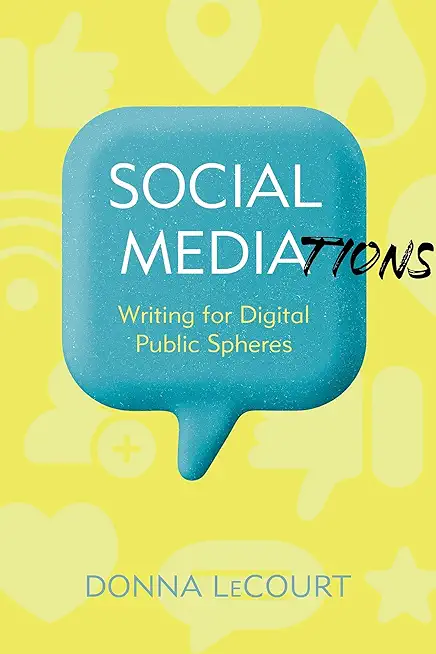
description
na LeCourt combines theoretical inquiry, qualitative research, and rhetorical analysis to examine what it means to write for the "public" in an age when the distinctions between public and private have eroded. Public spaces are increasingly privatized, and individual subjectivities have been reconstructed according to market terms. Part critique and part road map, Social Mediations begins with a critical reading of digital public pedagogies, then turns to developing a new theory that can guide a more effective writing pedagogy. LeCourt offers a theory based in embodied relationality that uses information economies to develop public spheres. She highlights how information commodities generate value through circulation, orchestrate relationships among people, and support unequal power structures. By demonstrating how we can use information capital for social change rather than market expansion, writers and readers are encouraged to seek out encounters with cultural and political impact.
member goods
No member items were found under this heading.
listens & views

2011 YG FAMILY CONCERT LIVE ...
by 2011 YG FAMILY CONCERT LIVE / VARIOUS
COMPACT DISCout of stock
$43.99
Return Policy
All sales are final
Shipping
No special shipping considerations available.
Shipping fees determined at checkout.






